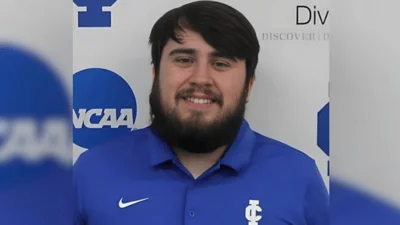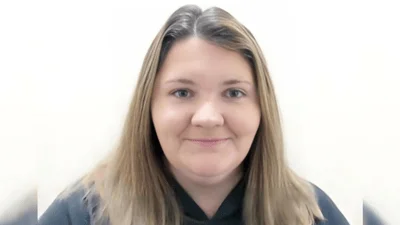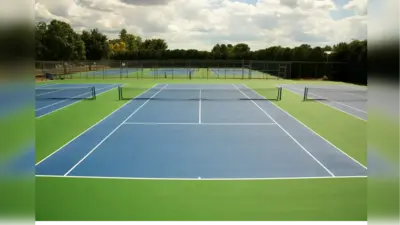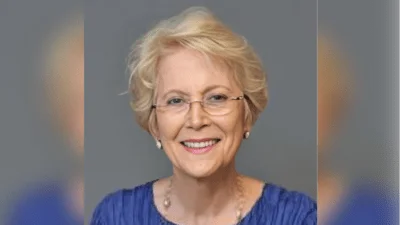Joseph C. Sosnowski, Illinois State Representative for 69th District | Official Website
Joseph C. Sosnowski, Illinois State Representative for 69th District | Official Website
In mid-October, the Illinois General Assembly will reconvene in Springfield for its annual two-week Veto Session, scheduled for October 14-16 and October 28-30. This session is primarily designed for legislators to review bills from the spring that received either a total or amendatory veto from the Governor. Lawmakers can override a gubernatorial veto with a three-fifths majority in both chambers or accept an amendatory veto.
The Veto Session often serves as an opportunity to address unresolved policy issues from earlier in the year or those that have emerged over the summer. Two major topics expected to be discussed are financial support for Chicagoland mass transit agencies and new green energy initiatives.
Chicagoland's transit agencies face a significant budget shortfall exceeding $770 million, partly due to their use of federal COVID-19 relief funds for general operations rather than one-time pandemic expenses. In response, Democratic lawmakers proposed a package late last spring that included various tax increases, such as a $1.50 delivery tax on nearly every home-delivered package, including groceries.
“Home delivery, especially for essentials, has become a lifeline for many families,” said Deputy House Minority Leader Ryan Spain. “At a time when high prices on essentials are already hurting family budgets across the state, adding a new delivery tax on top of the sales taxes families are already paying would be devastating.”
In addition to the delivery tax proposal, lawmakers may revisit discussions about expanding service taxes during this session. A proposal introduced in the spring would apply taxes to more than eighty common services—including parking, haircuts, dry cleaning, oil changes, and costly home repairs—potentially increasing living costs for residents.
“We fully expect the service tax conversation to come back during Veto Session this fall,” said Deputy House Minority Leader Norine Hammond. “This is a clear sign that Illinois families and small businesses are going to be asked to do more to fill the void for Democrats’ failed financial stewardship of our government. A service tax will drive up the cost of living even more for Illinois families.”
Energy policy is also likely to feature prominently in legislative debates. Democratic leaders and environmental groups are advocating another expansion of green energy measures amid rising utility costs attributed by some critics to previous policies. The current proposal includes surcharges on electric bills aimed at funding battery storage projects, relaxing certain nuclear power restrictions, and introducing new energy efficiency standards.
“Speaker Welch and Governor Pritzker like to pretend Illinois is leading the way on energy. But the truth is we are falling further behind while utility bills skyrocket, manufacturing jobs are at risk, and investment dollars leave our state,” said House Minority Leader Tony McCombie. “Fortunately, Illinois is blessed with one of the strongest nuclear fleets in the nation. Instead of chasing unrealistic green energy deadlines and expensive subsidies, we should focus on reliability and affordability. Families don’t care about ‘green’ slogans; they care about whether they can afford their electric bill and whether the lights stay on when it’s 100 degrees or -10.”
Concerns regarding employment losses tied to strict regulations under Illinois’s Biometric Information Privacy Act (BIPA) add complexity to these debates; business leaders worry these rules could lead companies—especially in tech and construction—to move investments elsewhere.
There may also be action taken regarding potential budget shortfalls facing Illinois’s finances this year. Since taking office Governor J.B. Pritzker has increased state spending by around 40 percent; he signed a record $55.2 billion budget in July while directing agencies via executive order last week to identify possible spending cuts amid concerns about future deficits.
House Republicans have long criticized what they describe as unchecked government spending over recent years: “when state spending has increased nearly 40% in just six years,” they argue current problems stem not from federal actions but from local fiscal practices.
Other proposals potentially up for debate include mandatory voting requirements statewide as well as changes affecting local election procedures.
Some topics appear unlikely to reach discussion during this session according to minority party members—such as substantial tax relief measures or reforms related to sanctuary policies or public safety laws like SAFE-T Act revisions—and calls continue among Republicans for ethics reform within state government.
Sosnowski has represented Illinois’s 69th House District since his election in 2011 after succeeding Ronald A. Wait.






 Alerts Sign-up
Alerts Sign-up